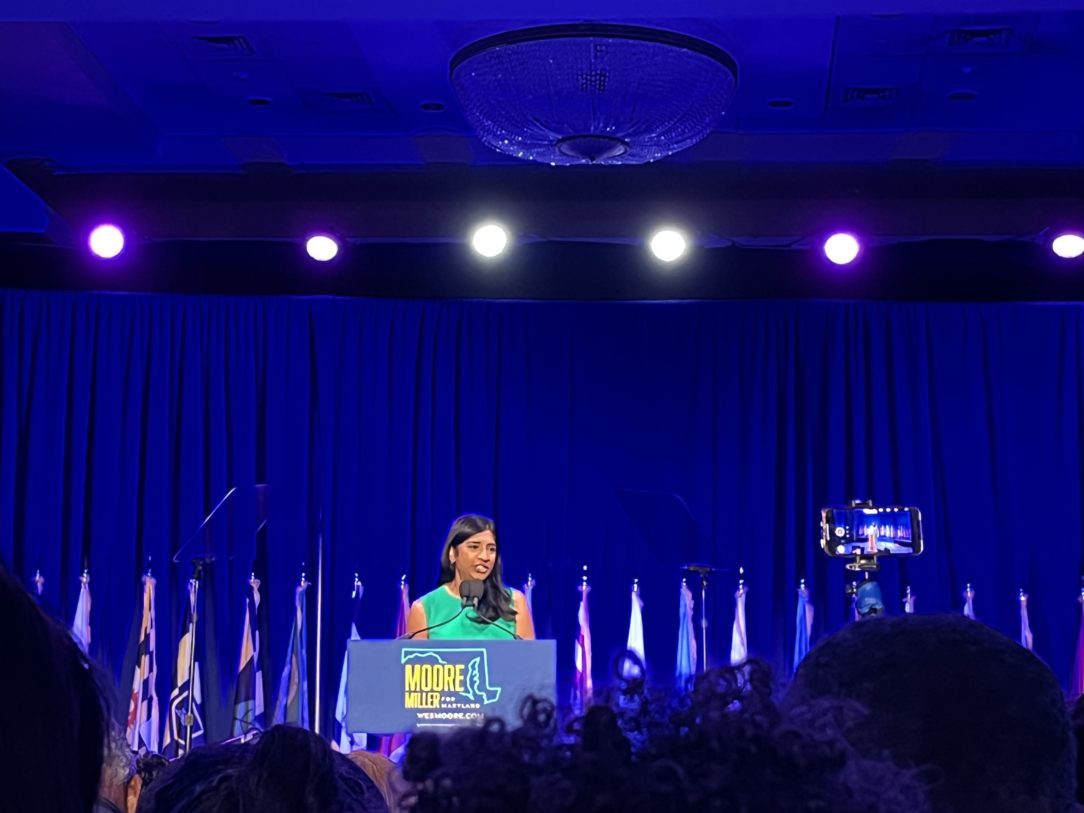Last Tuesday, I attended an election night party for Wes Moore and Aruna Miller, now governor-elect and lieutenant governor-elect of Maryland. It was a night of firsts; Wes Moore became the first Black elected as governor of Maryland, and Aruna Miller became the first South Asian person elected lieutenant governor of a state in the entire history of the United States.
Aruna Miller is Telugu, shares my ancestral homeland, and even is from the same town as one side of my family. She spoke about the civil rights movement and the pathways it created for immigrants of color, many from India, like her family (and mine).
The partnership between Aruna and Wes seemed especially symbolic.
In his acceptance speech, Wes Moore spoke about some of the people he has met on the campaign trail, one of whom was a woman struggling with unemployment because she and her community do not have access to reliable broadband. That is an issue for millions of Americans across the country.
The Federal Communications Commission has established a new program to help households across the country access broadband services.
What is the Affordable Connectivity Program (ACP)?
Here are some fast facts:
- It is a Federal Communications Commission benefit to help households afford broadband access for education, employment, and healthcare, to name a few necessities.
- Eligible households receive a monthly discount of up to $30 toward internet services; the amount is greater for families in Tribal lands, which may receive up to $75 per month.
- Households may be eligible to receive a one-time stipend of up to $100 to purchase an electronic device, such as a laptop or desktop computer, from predetermined providers.
- Eligibility guidelines are relatively broad; households may qualify if combined income is at or below 200% of Federal Poverty Guidelines or by meeting certain criteria, such as if a child or dependent in the household participates in a Free and Reduced-Price School Lunch Program. Complete eligibility guidelines can be found here.
There are complex barriers to the Internet, even when it is free or discounted. Data from No Home Left Offline indicate that while 51.6 million households are eligible for the ACP, only 13 million are enrolled. While this service is available, roadblocks such as lack of awareness, trust, language barriers, and complex enrollment processes are keeping communities offline.
In #MooreMiller’s state of Maryland, 779,981 households are eligible for the ACP. However, only 21% of eligible households are receiving the benefit. As of today, governors of 24 states have pledged to make broadband access and Affordable Connectivity Program adoption a priority. Maryland is one of them and is pushing for universal broadband by 2025.
Here’s to leaving no one behind.
Thanks for reading,
Himaja


